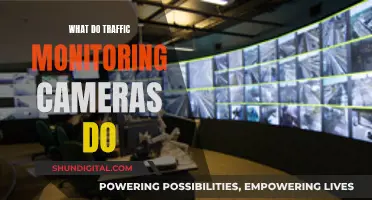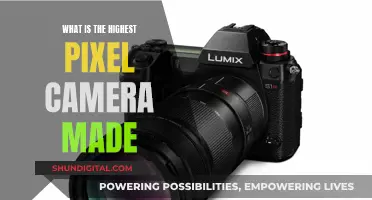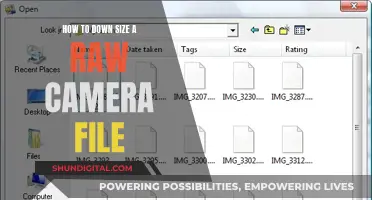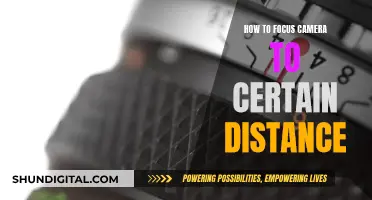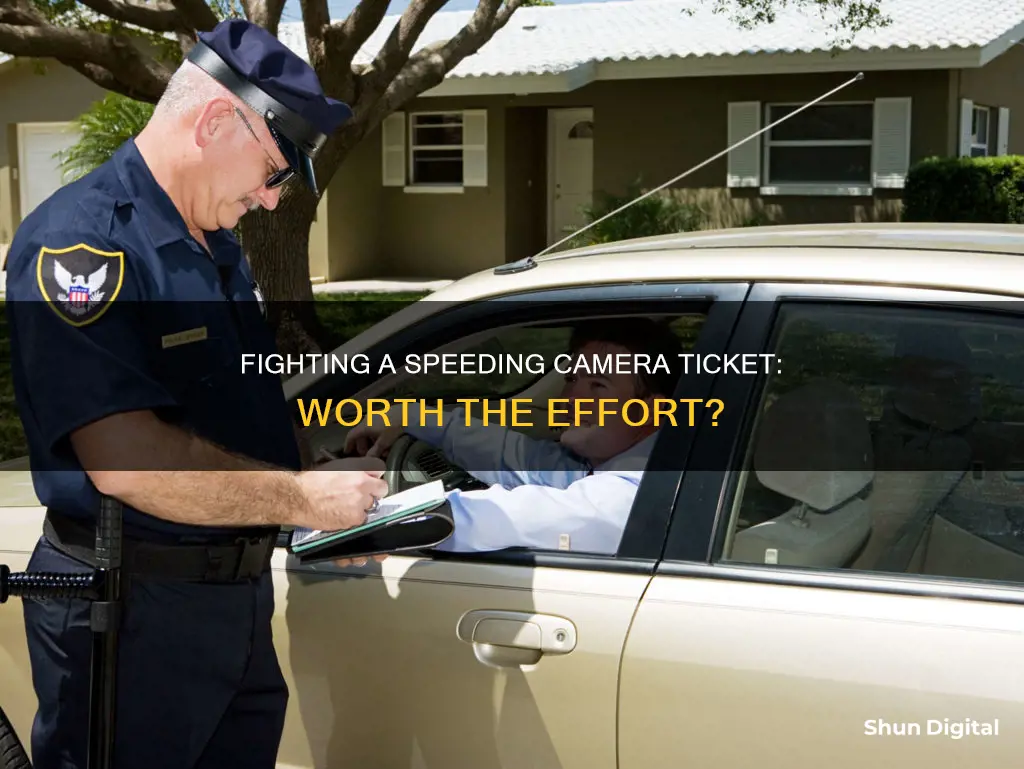
Getting a speeding ticket is never fun, and it can be frustrating to feel like you're at the mercy of the system. However, it is important to know that you have the right to contest a speeding ticket, whether issued by an officer or a speed camera. While it may seem easier to just pay the fine and move on, especially with red light camera tickets, there are several compelling reasons to consider fighting your ticket.
One reason to fight a speeding ticket is to avoid insurance increases. Speeding tickets, especially those that result in license suspensions, can lead to significant hikes in your insurance premiums. By contesting the ticket, you may be able to avoid these increases and protect your driving record. Additionally, speeding tickets can result in demerit points, which can further impact your driving privileges and insurance rates.
Another reason to dispute a speeding ticket is to hold the authorities accountable. Speed cameras, like any technology, can make mistakes due to calibration issues or technical problems. Contesting the ticket allows you to challenge the accuracy of the evidence and ensure that proper procedures are followed. This includes verifying that the camera was properly maintained, calibrated, and placed, and that the signage was correct and visible.
Furthermore, fighting a speeding ticket can save you money in both the short and long term. While the cost of the ticket itself may not be significant, the impact on your insurance rates can add up over time. By successfully contesting the ticket, you can avoid these additional costs.
When deciding whether to fight a speeding ticket, it is essential to consider the severity of the offence, the strength of your case, and the time and effort involved in the process. Minor traffic violations may be worth disputing, especially if there are inaccuracies in the evidence or procedural errors. However, more serious offences may require the assistance of a lawyer and could result in higher fines or penalties if you choose to contest them.
In conclusion, while it may be tempting to simply pay a speeding ticket and move on, it is worth considering the benefits of fighting it. By understanding your rights, gathering evidence, and presenting a solid defence, you can increase your chances of successfully contesting a speeding ticket and avoiding the associated fines and insurance increases.
| Characteristics | Values |
|---|---|
| Should you fight a speeding ticket? | It depends on the situation. If you were speeding due to necessity, it may be worth fighting the ticket. If the camera was not properly maintained or calibrated, you may be able to dispute the ticket. |
| Factors to consider | Time, money, insurance implications, points deductions, driver identification, photographic evidence, legal advice, your driving record, etc. |
What You'll Learn

The accuracy of the camera
The accuracy of speed cameras has been a topic of debate for years. Speed cameras are officially described as being calibrated to an accuracy of two per cent. However, some court cases have hinged on alleged inaccuracies in the speed camera evidence, with defendants arguing over the reliability of the cameras and whether they were used correctly.
In Chicago, the camera program improperly gave out over $2.4 million in fines from 2013 to 2015, with around 110,000 bad tickets issued. Over half of the cameras in use were found to be giving out faulty speeding tickets. These issues are not limited to Chicago, with similar problems found in Washington, D.C. in 2014.
In the UK, the first fixed speed camera was installed in Twickenham in 1992. In the early days, drivers were allowed a wide margin of error before prosecution took place, with a former police officer claiming that drivers were allowed to exceed the speed limit by up to 20 mph.
Today, speed cameras are sometimes referred to as 'scameras' and are widely seen as a money-making scheme for local authorities. While some argue that speed cameras are an honest form of traffic enforcement, others believe that roads should be designed so that drivers naturally adhere to speed limits, without the need for strict enforcement and fines.
When disputing a speeding ticket, it is important to examine the evidence, including any photographs and the accuracy of the camera. If the photographs are blurry or do not clearly show that you were driving, this may be grounds for dismissal. It is also crucial to review the applicable laws and research any recognised defences, such as the necessity defence for speeding.
Cleaning Corroded Camera Battery Terminals: DIY Guide
You may want to see also

Signage issues
In Maryland, for example, speed cameras are typically found in school zones, residential areas, and construction zones. For a speeding camera ticket to be valid, proper signage must be in place to inform drivers of speed limits and the presence of speed cameras. If the signs were missing, obscured, or placed incorrectly, you may have grounds to contest the ticket.
In addition to signage, other defences against speeding camera tickets include challenging the accuracy of the camera, mistaken identity, and procedural errors.
The First Camera Drone: A Historical Perspective
You may want to see also

Mistaken identity
If you believe the speeding camera has captured the wrong vehicle, you can fight the ticket. Gather evidence to support your claim, such as proving you were not driving in that area at that time. You can also request maintenance and calibration records of the camera to check if it was functioning correctly at the time of the violation.
In some jurisdictions, you can plead your case by mail or online. If not, you will have to appear in traffic court and plead not guilty. You can then request a formal hearing.
You can also argue that the camera photo is hearsay and thus inadmissible evidence. You have the right to confront your accuser, which is not possible in this case.
Charging Vintage 8mm Cameras: A Step-by-Step Guide
You may want to see also

Procedural errors
- Examine your ticket: Check the date, time, and location of the alleged violation. If you were not driving the car at that specific time, you may not be liable for the ticket.
- Review the evidence: Request and carefully review any photographs, videos, or other evidence captured by the speeding camera. Blurry or unclear images may be grounds for disputing the ticket.
- Plead not guilty: Respond to the citation by mail, online, or in person by pleading not guilty. This is usually done within 30 days of receiving the ticket.
- Request a hearing: Demand a formal hearing or trial. This will allow you to present your defence and challenge the evidence.
- Obtain maintenance records: Request maintenance and calibration records for the speeding camera and any associated equipment. Inaccurate or unreliable equipment may invalidate the evidence.
- Research applicable laws: Look for cases and appellate court decisions related to traffic cameras in your area. There may be specific rules or defences recognised by law that you can use.
- Challenge the admissibility of evidence: In some jurisdictions, photographs from traffic cameras may be considered hearsay and may have evidentiary requirements. Consult with a legal professional to understand the rules of evidence in your jurisdiction.
- Assert your right to confront witnesses: Under the Sixth Amendment of the Constitution, you have the right to cross-examine witnesses. If no one from the company that maintains the camera appears to testify, you may object to the use of the photographs.
- Dispute the authenticity of the evidence: If the prosecution cannot establish the proper functioning of the speeding camera and associated equipment, you may object to the admission of the photographs as evidence.
- Raise other defences: Depending on your jurisdiction, there may be additional defences available to you, such as a necessity defence for speeding (e.g., driving to the hospital in an emergency).
Yashica Cameras: Still in Production or a Thing of Past?
You may want to see also

The financial and credit implications of ignoring a ticket
The financial and credit implications of ignoring a speeding ticket can be severe and far-reaching. While it may be tempting to ignore a speeding ticket, doing so can have serious consequences on your life, your financial well-being, and your future. Here are some of the potential financial and credit implications to consider:
- Increased Fines: Ignoring a speeding ticket or making a late payment can trigger additional costs and penalties. The amount that you will have to pay will depend on the type of traffic violation and the jurisdiction in which you received the ticket.
- Collections and Credit Score Impact: If you do not pay your speeding ticket within the specified timeframe, your account may be sent to a collections agency. This can have a negative impact on your credit score and make it more difficult to take out loans or credit cards in the future.
- Legal Consequences: Failing to pay a speeding ticket or respond to a court summons can result in further legal proceedings, including a warrant for your arrest and potential jail time, depending on the jurisdiction and the severity of the offence.
- Insurance Rate Hike: A speeding ticket on your record may lead to an increase in your car insurance premium. The exact increase will depend on your insurance provider, your previous driving record, and the severity of the speeding offence.
- Loss of Safe Driving Discounts: In addition to an increase in your insurance premium, you may also lose any safe driving discounts you previously had, further adding to your financial burden.
- Court Costs and Legal Fees: If you choose to contest the speeding ticket in court, you will likely have to pay court costs and legal fees, which can be significant.
- Impact on Employment: Accumulating multiple traffic violations, including speeding tickets, may negatively impact your employment opportunities, especially if your job involves driving or requires a clean driving record.
Given these potential financial and credit implications, it is generally not advisable to ignore a speeding ticket. Instead, consider seeking legal assistance, comparing insurance rates, or enrolling in a defensive driving course to mitigate the negative consequences.
Dispose of Your Camera's Lithium Battery the Right Way
You may want to see also
Frequently asked questions
Ignoring a speeding camera ticket can lead to several consequences, including increased fines, legal action, and negative effects on your driving privileges and financial health. You may face late fees, a court summons, and even a default judgment against you if you don't respond to the ticket or court summons. Your vehicle registration and driver's license may also be impacted, and your unpaid fines may be sent to collections, damaging your credit score.
There are several defences you can use when contesting a speeding camera ticket. You can challenge the accuracy of the camera by requesting maintenance and calibration records. Argue that the signage was missing, obscured, or incorrectly placed. If the camera captured the wrong vehicle, provide evidence showing you were not driving the car or were elsewhere at the time. Highlight any procedural errors, such as incorrect information on the citation.
There are three potential outcomes when fighting a speeding ticket in court:
- Innocent: You won't have to pay the fine, and there will be no impact on your insurance rates or demerit points.
- Guilty: You will have to pay the fine, which may be reduced, but it will stay on your record and could affect your insurance in the future.
- Guilty with an explanation: You admit guilt but provide mitigating circumstances, which may result in no fine or insurance increase.



